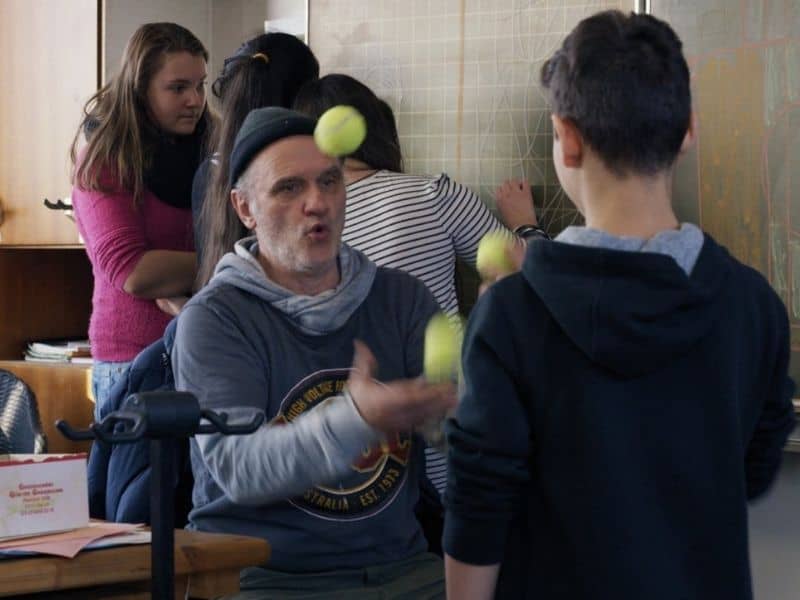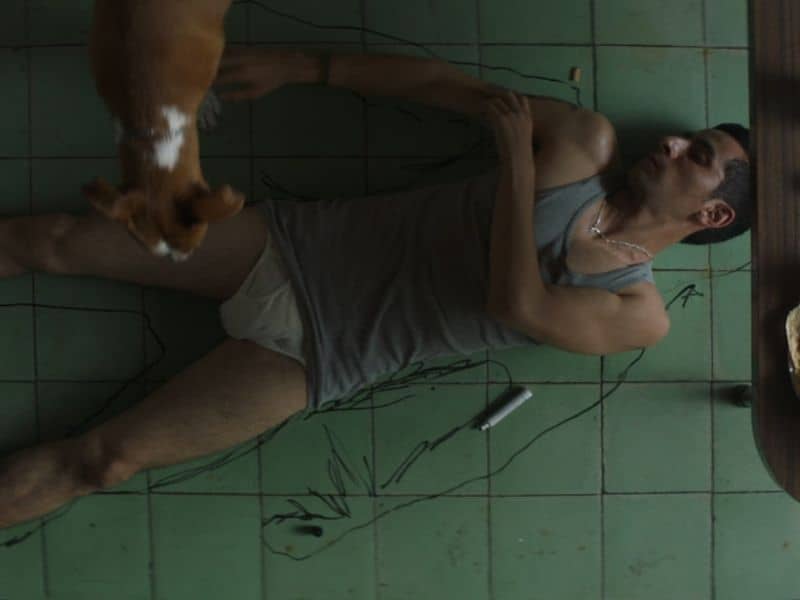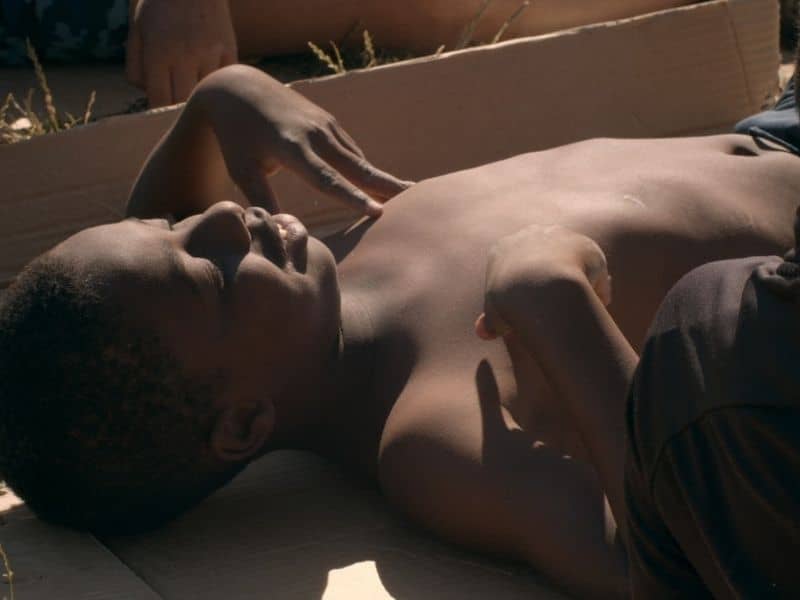Dok.cetera: The Berlinale Documentaries
For the 71st Berlinale – Berlin International Film Festival, things were forced to operate a bit different than in years past. Due, of course, to the ongoing pandemic situation that has upended and adjusted festivals and events of all descriptions over the last year, Berlinale shifted its form, presenting its 2021 activities across two sessions. The first, from 1 to 5 March, saw an online festival and European Film Market where guests and journalists were able to view its full program. Then, from 9 to 20 June, audiences will be able to enjoy the selections as a wider public program will be presented in conjunction with current health and safety regulations.
As we know by now, the 71st Golden Bear went to Radu Jude’s Bad Luck Banging or Loony Porn, which spearheaded perhaps the festival’s strongest program in recent memory. However, despite the strength and diversity of its narrative selections, the Berlinale documentary program presented just as stellar a lineup of theme and form. Whether as part of special screenings, in competition, or via the Encounters of Forum selections, some 30+ non-fiction films featured, many of which are sure to enjoy long festival and distribution lives throughout the year and beyond. Here, for the second edition of our monthly Dok.cetera column, we take a look at some of the best documentaries screened. These five films either took home awards or left a particular impression on me (but by no means are they categorized as the “5 Best”). Across its selections, stellar contributions came from around the world, with particular emphasis on – though not featured here – Salomé Jashi’s Taming the Garden (as featured in our February documentary recommendations – Georgia), Aliaksei Paluyan’s Courage (Belarus), Avi Mograbi’s The First 54 Years – An Abbreviated Manual for Military Occupation (Israel), and Shenze Zhu’s A River Runs, Turns, Erases, Replaces (China, USA).

Mr. Bachmann and His Class (dir. Maria Speth) – Germany
Maria Speth’s sprawling documentary (clocking in at 217 minutes) took home the Berlinale Silver Bear Award Jury Prize with its intimate and insightful look at provincial German education. Located in Stadtallendorf, a German town possessing a lengthy yet volatile relationship with foreigners, the film follows Dieter Bachmann, an unconventional teacher (his classes feature juggling lessons and jam sessions as much as they do lectures and equations) on the cusp of retirement. His sixth-grade class is one filled with 12–14-year-olds, many of which foreign (12 nationalities are represented in his class, including students from Bulgaria, Romania, Turkey, and Kazakhstan) and without full proficiency in the German language. There, students and teachers engage with a mélange of activity, opinions, and subjects, as they navigate both a reinforcement of self-identity in a new land and the necessary acclimation to achieve social permanence in it. Reminiscent of the Frederick Wiseman filmography (whose recent equally, if not more, sprawling City Hall takes a similar approach to local US government), Mr. Bachmann and His Class highlights both the importance of proper education, as well as the subjective process necessary in order to get there. It is slow yet thorough, intimate yet universal, and unapologetically honest in its candor.

A Cop Movie (dir. Alonso Ruizpalacios) – Mexico
An experimentation in documentary and narrative, Mexican filmmaker Alonso Ruizpalacios’ Silver Bear for Outstanding Contribution-winning (for Yibran Asuad’s marvelous, ever consistent editing) A Cop Movie, is a story of corruption and dysfunction within the Mexico City police force. An existential examination of the skills and mindset it takes to become a police officer in one of the world’s most violent cities, A Cop Movie signals a significant step forward for Ruizpalacios, already one of the country’s most exciting and award-laden auteur filmmakers (Museo, Narcos: Mexico). On its surface, A Cop Movie plays out as… well, just that. In following partners Teresa and Montoya throughout their daily routine, while also expounding on ever-relevant topics like funding (or lack thereof), distrust and defiance from the country’s citizenry, as well as the various ethical questions arising in this line of work, not much seems out of ordinary. In fact, at this point, one can argue that there is virtually nothing revolutionary about it. Here, however, Ruizpalacios offers his caveat to the verité proceedings with the unveiling that Teresa and Montoya (also, as much partners in life as they are behind the badge) are actually Mónica Del Carmen and Raúl Briones, two method actors researching for the role of police officer. From academy training to street patrolling, Del Carmen and Briones endure the gamut of law enforcement experience at its street levels, unveiling a kaleidoscopic view of Mexico City and the various motivations that lead to a career in law enforcement.
A Cop Movie will screen on Netflix later this year.

Nous (We) (dir. Alice Diop) – France
As something of an anthology, Alice Diop’s Encounters-winning Nous (We) stitches together snapshots of everyday life along the Parisian RER B urban train line. The North-South running line can be considered the connective tissue to answering the question: Who are “we”?, as its outward view shifts from cold concrete urbanization to lush forests. Seeking to be a personal essay in ethnography, Nous is a tapestry of experience, highlighting the universality of suburban life with the realities of the now. With its Black and immigrant population observations, the film looks at the French capital beyond a mere destination, but rather an ever-evolving entity complete with tenets, (unspoken) rules, and social hierarchies. These make it both unique in its opportunity yet overwhelmingly frustrating in its stubbornness of mind toward those ever thought of as “other”. With a Chantal Akerman-like emphasis on the mundane, Diop also turns the camera on herself, interjecting her (and her family’s) own experience as French-Senegalese into the wider conversation of community integration, as well those from the oft-ignored on its margins. Through patience and sobriety, Nous openly ponders the answer with Diop (eventually alongside prolific French author Pierre Bergounioux, himself a child of poverty) offering a reflective but fair assessment of modern French social diversity.
Nous is currently screening as part of Paris’ Cinéma du réel.

Anmaßung (Anamnesis) (dir. Chris Wright, Stefan Kolbe) – Germany
One of Berlinale Forum’s most interesting titles, Anmaßung (Anamnesis) ventures into the mind of a killer, attempting both reconstruction and explanation to his brutal actions. Filmmakers Chris Wright and Stefan Kolbe follow Stefan S., a young man convicted of murdering a colleague, as he participates in one of Germany’s most forward-thinking rehabilitation programs. This program, named “Masculinity and Identity” and located in Brandenburg Prison, seeks to understand the underlying causes of violence (particularly, and in this case, against women) by deconstructing perpetrators’ personal histories, creating an intimate space of understanding between intent and action. In highlighting anonymity (both perpetrators and victims are provided false names, while Stefan S is veritably transformed into a living doll – masked and puppeteered within a veritable theater), Wright and Kolbe offer viewers a detached space where quick judgment gives way to inherent inquisitiveness. Of course, the use of puppets in therapy is nothing new. It is frequently used, albeit not as such a personal/puppet synergy, to provide space for newfound awareness. Here, however, it allows the walls to close in on simple time and action regurgitation, replacing it with a more imaginative air of deviance. Across its years-long production, Stefan, Wright, and Kolbe develop a deep, multi-faceted relationship, culminating in the latter two’s equal interest in the former outside of the prison walls as within them. Ultimately, the film’s refusal to pass judgment on Stefan, or even take a position on his case, history, and future, raises more questions than answers, laying the road toward a deconstruction of wrongdoing than redemption.

Who We Were (dir. Marc Bauder) – Germany
As much a meditation on humankind’s current state as it is a cry for help, the poetic Who We Were offers a beautiful and somber look at our world’s most pressing problems. Inspired by German author Roger Willemsen’s final book, Marc Bauder’s film wonders openly how future generations will think of current society, thus looking to the contemporary from the perspective of the future: “We were the ones who knew, but did not understand, full of information but lacking insight, brimming with knowledge, but lacking experience. So, we just kept forging ahead, unstopped by ourselves”, read the film’s opening intertitles. In making his case, Bauder enlists the thoughts of six diversely interesting protagonists (French molecular biologist and Buddhist Monk Matthieu Ricard and post-humanist Janina Loh amongst them), offering both reflections and solutions to their most pressing issues and questions: “What is freedom?”, “How do we, as a collective unit, create the idea of us?”). From the ocean to the galaxy, economics to philosophy, the scale of Who We Were’s themes are only matched by the beauty of Börres Weiffenbach’s visually stimulating cinematography.
"Came to Bucharest after living in Amsterdam & Brooklyn, among others, Steve is the industry editor for Modern Times Review documentary magazine.
